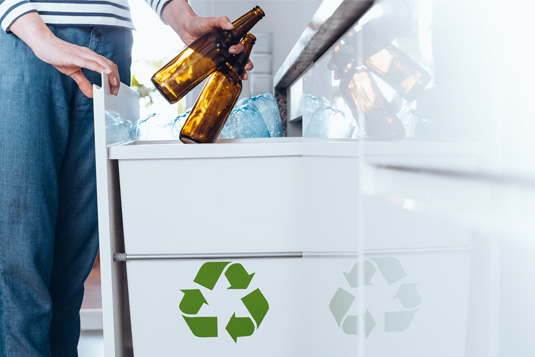
GPF welcomes Minister’s kerbside recycling announcement

The Glass Packaging Forum (GPF) has welcomed Environment Minister David Parker’s announced plan to standardise the materials that must be collected in household kerbside recycling, including glass bottles and jars.
The new rules will apply to communities with a population of more than 1,000 people.
GPF Scheme Manager Dominic Salmon says standardising and improving the kerbside recycling system is something the GPF has long supported.
“Having one system for collecting kerbside recycling will make it simpler and easier for New Zealanders to do the right thing. It will also make messaging about recycling, whether from Government, councils, or industry, far simpler and more effective,” he says.
Today’s announcement on kerbside standardisation is accompanied by the release of a new national waste strategy Te Rautaki Para, which will be followed by new waste legislation.
The GPF also welcomes the waste strategy’s support for product stewardship as a valuable resource recovery tool. “Data is another area we are very pleased to see the strategy focussing on. If Aotearoa wants to tackle its poor record on waste, then we will need accurate, detailed, and uniform data to develop solutions,” Dominic says.
He said the GPF was disappointed the Minister’s announcement didn’t specify that glass must be collected separately under the new standardised system.
“It’s industry best practice to collect recyclables, especially glass and cardboard, in separate containers at kerbside. This prevents contamination and results in lower sorting costs, less waste and higher recycling rates,” Dominic says. “If Government wants to reduce waste and pursue circular economy outcomes, then glass should be collected separately.”
This was highlighted in the recent report commissioned by the GPF from Grant Thornton, which concluded that an extended producer responsibility (EPR) approach for glass that leveraged kerbside collection would deliver better emissions reduction and higher recycling rates more cost effectively than the government’s proposed CRS. Improved support for product stewardship based on an EPR framework is included in the Te Rautaki Para waste strategy.
He added that even if the recently deferred proposed container return scheme (CRS) was to be implemented, kerbside recycling would still be vital. “This is because many people will still choose to recycle their beverage containers through kerbside, as we are seeing happen in Australia.
“It’s also important that people with mobility challenges continue to have access to kerbside recycling for their beverage containers. And of course, it would still be necessary to recycle non-beverage glass containers like jars that would not be covered by the proposed CRS,” Dominic says.


